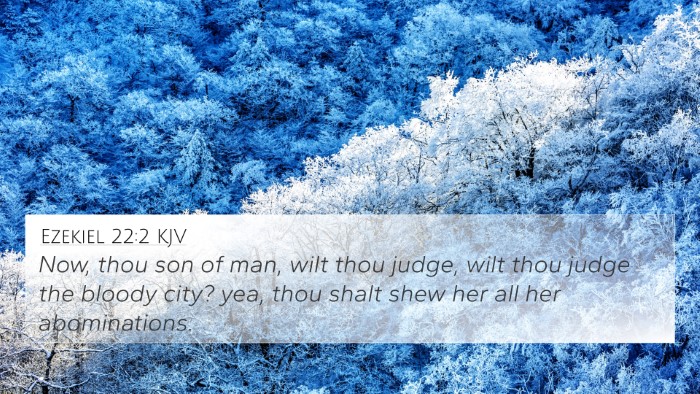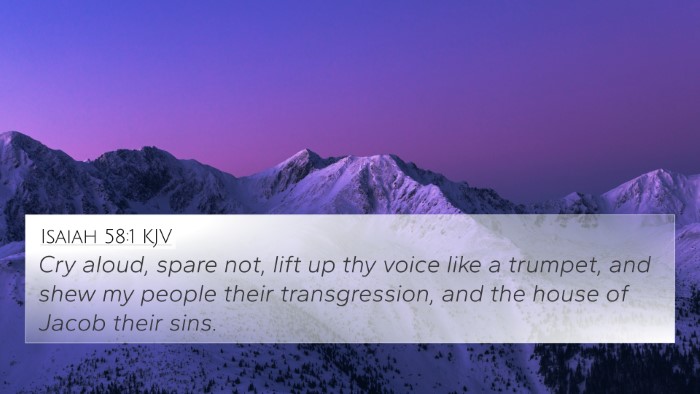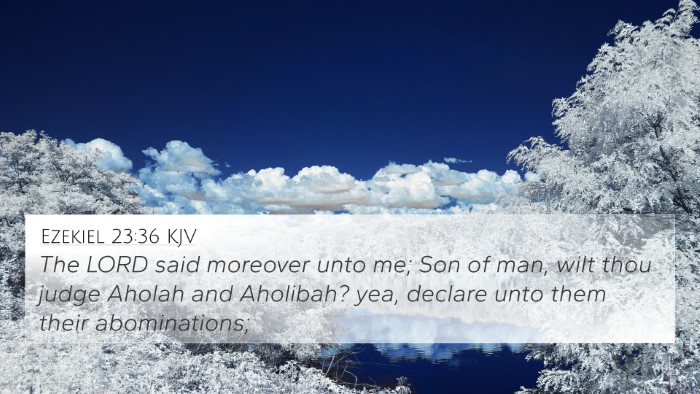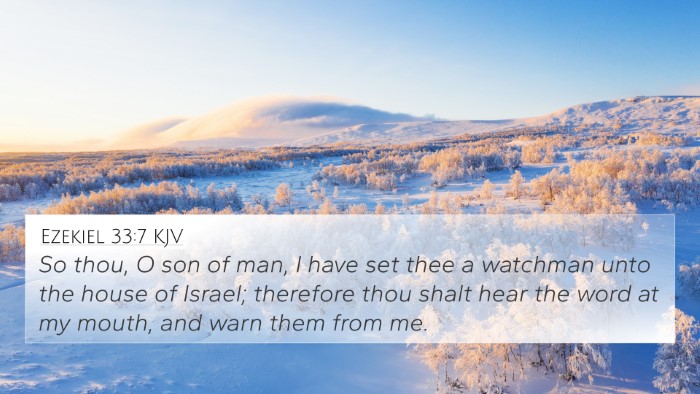Ezekiel 16:2 - Commentary and Meaning
Ezekiel 16:2 states: "Son of man, cause Jerusalem to know her abominations." This verse is pivotal in understanding the prophet Ezekiel's role and the larger narrative of Israel's spiritual condition.
Understanding the Verse
This verse serves as a call to awareness—highlighting the necessity for Jerusalem (symbolic of the people of Israel) to recognize its own spiritual failings. Ezekiel, as a prophet, bears the critical duty to reveal the truths about the people's iniquities.
Insights from Commentators
-
Matthew Henry:
Henry emphasizes the importance of self-examination and recognizing one’s own faults. He interprets the term “abominations” as not only moral failures but also as actions that have breached the covenant relationship with God.
-
Albert Barnes:
Barnes expounds on the contextual nature of Jerusalem's sins, suggesting that the verse serves as a divine indictment. He points out that the acknowledgment of sin is vital for repentance and restoration.
-
Adam Clarke:
Clarke notes the prophetic nature of the verse and the implications of God's call to recognize one's sinful state. He underscores that awareness of abominations leads to a cry for forgiveness and divine grace.
Theological Implications
The theological implications of this verse reach into discussions of sin, repentance, and God's grace. It serves as a reminder that acknowledgment precedes restoration; one must admit faults to seek cleansing.
Cross-References
This verse connects deeply with other biblical texts. Here are some cross-references that further illuminate its themes:
- Isaiah 1:18: "Come now, and let us reason together, saith the Lord; though your sins be as scarlet, they shall be as white as snow."
- Jeremiah 3:13: "Only acknowledge your iniquity, that thou hast transgressed against the LORD thy God."
- Revelation 2:5: "Remember therefore from where you have fallen; repent, and do the works you did at first."
- Romans 3:23: "For all have sinned, and come short of the glory of God."
- 2 Chronicles 7:14: "If my people, which are called by my name, shall humble themselves, and pray, and seek my face."
- Psalm 51:3: "For I know my transgressions, and my sin is ever before me."
- Luke 15:18: "I will arise and go to my father, and I will say to him, 'Father, I have sinned against heaven and before you.'
- Matthew 3:8: "Bear fruit in keeping with repentance."
- James 4:8: "Draw near to God, and he will draw near to you. Cleanse your hands, you sinners, and purify your hearts, you double-minded."
- Proverbs 28:13: "Whoever conceals his transgressions will not prosper, but he who confesses and forsakes them will obtain mercy."
Inter-Biblical Dialogue
Linking the messages from Ezekiel with these cross-references reveals a profound dialogue within Scriptures about sin and redemption. It illustrates how the plea for awareness and repentance in Ezekiel echoes throughout both the Old and New Testaments—connecting themes of judgment and mercy that are vital for believers' understanding.
Practical Application
As modern readers of the Bible, the call to recognize our "abominations" resonates deeply. It encourages self-reflection and moving towards humility and repentance. Understanding this verse inspires believers to actively seek God’s grace and to maintain a heart that is attuned to the need for confession and restoration.
Conclusion
In conclusion, Ezekiel 16:2 is foundational for comprehending humanity's relationship with God. It implores readers to deeply analyze their own lives mirroring the profound insights offered by revered commentators. May this understanding lead individuals to richer reflections in their personal faith journeys.









